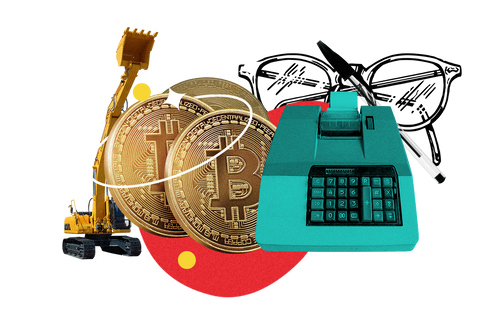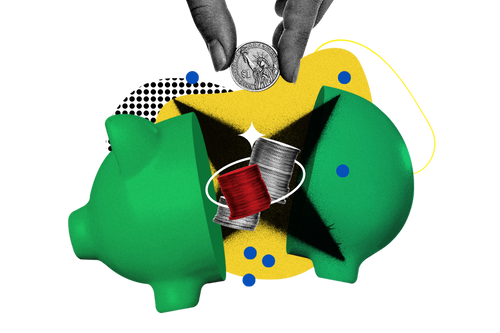INVEST LIKE A STOCK MARKET PRODIGY
Think you've got what it takes to beat the market? From beginner to advanced, test your skills with these trading apps.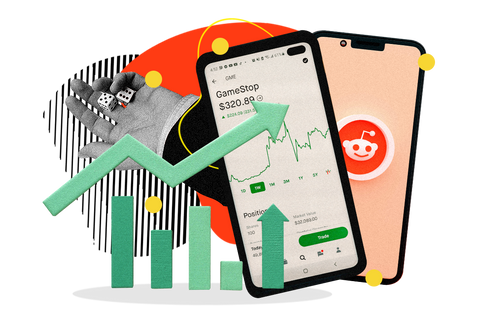
Good for:

Stock Trading

Global Markets

Active Investing
Place your bets and watch the market move, hopefully in your favor.
If you thought Redditors using Gamestop stock to take down a hedge fund was wild, that was nothing compared to 1992 when investor George Soros broke the Bank of England. He bet against the British pound and turned a $1 billion profit in a single day of trading. Of course, your results may vary. Soros bet $10 billion to earn that $1 billion overnight. He could've just as easily lost it all, which is what happened to a lot of people who hopped on the $GME train even a day too late.
In the daily debate between active vs passive investing, this is why most people opt for the safer route of investing in index funds (a basket of hundreds of diversified stocks and bonds) and a 401(k) over picking and trading stocks. After all, the average active trader underperforms these market indexes by 6.5% per year. That said, you're not going to get filthy rich overnight (or perhaps ever) by investing passively. That's what keeps the Wall Street Bets dream alive—if you spend enough time scouring Reddit, learn how to read financial statements, and test out some trading strategies, maybe you can pull your own hedge fund heist.
While trading stocks is risky, it's also easier and cheaper than ever to get started thanks to trading apps. These platforms charge low or no trading fees, have low investment minimums, and sometimes even let you test out your skills risk-free via "paper trading," or stock market simulators. Here's how to try your hand at becoming the next market genius and the best trading apps to do it on.
Good for:

Stock Trading

Global Markets

Active Investing
Level up or game over
The GameStop short squeeze made millionaires of a handful of everyday retail investors, but it also left a lot of people in the dust with nothing to show for their investment. The difference between a painful loss and a multi-million dollar win when it comes to active trading is often a matter of days.

Winners and Losers
- GME's winner: A 27-year-old manager at an auto parts store in Connecticut read about the stock on Reddit early on and started buying shares in November and December with an investment that totaled $140,000, according to Forbes. He ended up selling his shares after the stock's historic climb in January for $1.8 million.
- GME's loser: A 25-year-old security guard in Virginia read about the hype on Reddit in late January and bought $20,000 in Gamestop stock when shares were already at $234, believing they'd hit $1,000, according to Wall Street Journal. By mid-February shares were down to $52.40, making his investment worth just $4,478 and leaving him in serious debt.
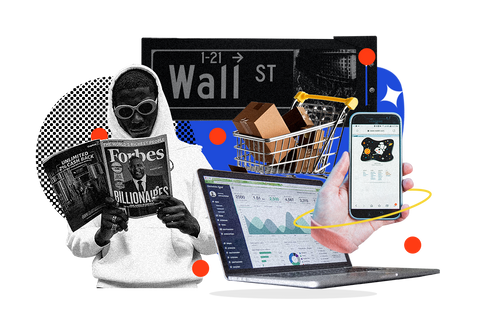
Time to strategize: Trade fast or go long?
In the long run, the stock market generally goes up over time, which is what passive investors take advantage of. In the short run, though, there are lots of ups and downs. Active trading is all about exploiting these short cycles to turn a quick profit. How far you zoom in on these trends determines your trading style.
- Day trading: You buy and sell within the same day, so you're not holding anything overnight. It's typically a full-time job, and this type of trading often has more profit potential as well as more risk.
- Swing trading: These traders still buy and sell in the short-run but hold for more than one day—they look for patterns over the course of several days or weeks. This type of trading is generally easier to get into and doesn't require as much of a time commitment.
It's time to start looking for trades. Which style do you prefer?
1. Make trading cake a piece of cake
Robinhood is where so many investors buy their first stock nowadays, and for good reason. Gamestop controversy aside, its mobile app has the friendliest interface out there, and there's no balance requirement to open an account. Robinhood is best known for allowing unlimited commission-free trades, which saves you a lot of money when you're making trades on a regular basis. In addition to trading stocks, you can also trade options and crypto on this app.
Robinhood
4.3
•
Stocks
Robinhood
4.3
•
Stocks
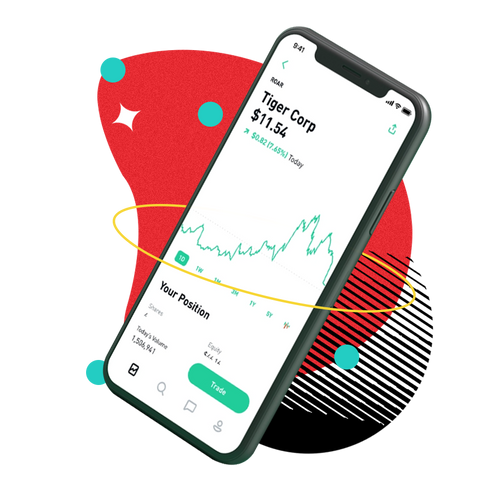
Robinhood
4.3
•
Stocks
Robinhood
4.3
•
Stocks
2. Get your advanced charting on
When it comes to trading with the heavyweights (and getting access to the advanced tools they use), the “thinkorswim” platform by TD Ameritrade takes the trophy. The paper trading platform lets you try out strategies with "fake money" before diving in with your hard-earned cash. Once you're ready to go, their software comes packed with tools that help you analyze the market and execute complex trades, and it even allows for options and forex trading. Most trades are commission-free, and if you're feeling intimidated, they offer plenty of free educational videos.
TD Ameritrade
Stocks
TD Ameritrade
Stocks
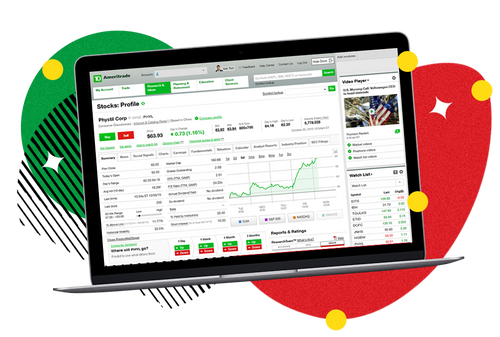
TD Ameritrade
Stocks
TD Ameritrade
Stocks
3. Follow, share, like...invest?
Buying and selling stocks goes social with trading app Public. Whether you want to know what your investor friends are up to or you want to play copycat with stock market thought leaders, this innovative social stock trading platform can help you learn from and teach others while you level up your investing game. You can get started with just a dollar, and you won't be charged a commission on any standard trades.
Public
4.8
•
Stocks
Public
4.8
•
Stocks
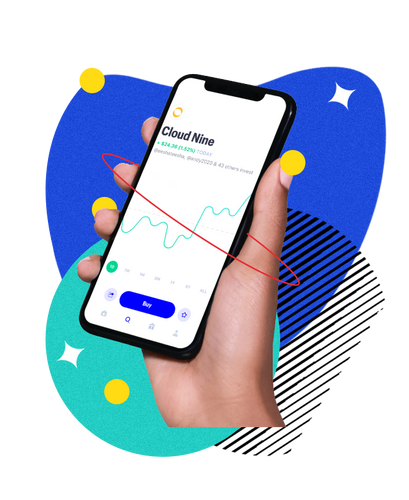
Public
4.8
•
Stocks
Public
4.8
•
Stocks
The last word on trading apps
While trying to beat the market is risky, you'll never know if you've got what it takes until you try—just don't blow your rent money on the next hyped-up meme stock. Instead, go with trading apps that let you start small and work your way up to that YOLO trade.
Law of Averages
Averaging down is an investing strategy in which you buy more of a stock you hold when the price goes down because you expect it to go back up. You're essentially taking advantage of a temporary discount on that stock. Is this a good strategy for day traders?
DO MORE WITH YOUR MONEY.
RIDE WITH US
